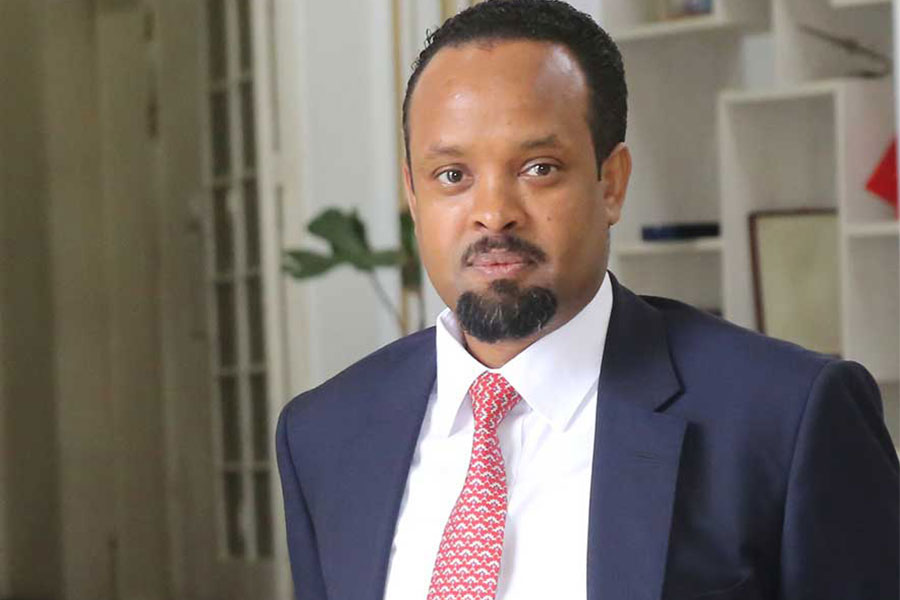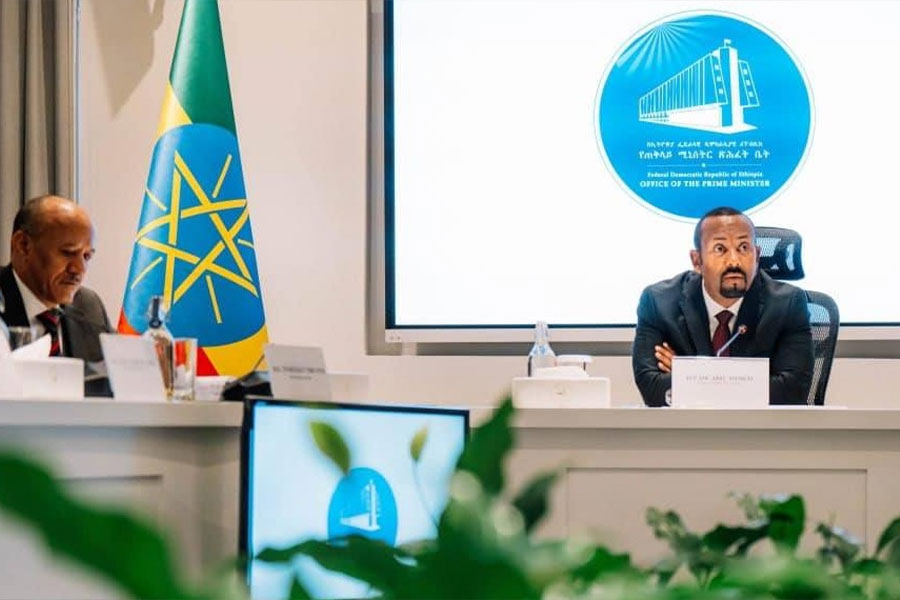
View From Arada | Feb 10,2024
Jul 22 , 2023
By Halima Abate (MD)
Recommitting to universal health and social protection ideals is necessary and crucial in addressing consequences and achieving social justice. Pursuing these goals is not just a matter of political will or resource allocation; it is about acknowledging and acting on the fundamental truth that healthcare is a universal right, and everyone deserves access to it everywhere, writes Halima Abate (MD) (halimabate@gmail.com), a public health professional with over a decade of experience.
Healthcare is not a commodity or luxury but a fundamental human right. Yet, this right remains a distant dream in many parts of the world due to economic hardships, infrastructural issues, or sheer lack of political will. However, Universal Health Coverage (UHC) aims to change this, representing an ambitious endeavour to ensure quality healthcare services for everyone, irrespective of income, race, or geographical location.
But while we advocate for UHC, the nature of this multi-sectoral, multi-dimensional issue demands more than just policy papers or buzzwords. Achieving UHC needs a dedicated political commitment, concrete resource allocation for disease control and prevention, and strengthening health systems worldwide. It demands a change in perspective – viewing health as a shared responsibility among states, communities, and individuals.
In our fast-evolving world, the burden of diseases has shifted from acute to chronic illnesses, which demand long-term care and consistent monitoring. With this epidemiological shift and the increasing economic and social challenges, the need for healthcare services that are humane, self-reliant, and financially less burdensome has grown more than ever.
Since its inception, the idea of UHC has evolved through various stages, like the Primary Health Care (PHC) era, the Millennium Development Goals (MDG), and the ongoing Sustainable Development Goals (SDG).
UHC aims to integrate a human rights-based approach with social protection at its core, recognising that a healthier population contributes to work and professional development. However, achieving UHC is no small feat. There are considerable obstacles, such as the lack of a universally accepted definition, precise measurements, and defined benefits of healthcare packages. These ambiguities could impede the progress and measurement of UHC's advancement and achievements.
But to fully appreciate the idea of UHC, one must consider its reciprocal relationship with social protection. Good health and access to healthcare are integral components of comprehensive social protection. Yet, there has been an unfortunate narrowing of focus in recent times, where social protection is mainly seen through the lens of financial protection, focusing predominantly on cash transfers and poverty relief.
This shift in perspective underlines a glaring need to reassess and broaden our understanding of social protection.
The discussion around social protection should include a diverse range of universalistic policy interventions, focusing on income security, healthcare, and managing labour market-related risks. It is imperative to align our efforts towards Universal Social Protection (USP), which should be considered part of the broader agenda for 2030, the year when the SDG concludes.
We must conceptualise social protection as a mixture of public and private policies and programs that aim to eradicate poverty and deprivation. These should support basic income or social assistance programs, making social services universally available. In effect, high-level engagement and prioritising USP could lead to financial risk protection, reducing the number of people facing financial hardship due to out-of-pocket healthcare expenses.
However, the discourse on social protection needs to be evaluated not only for conceptual exchange and development of technical assistance but also for policy changes over time. The nature of global policy change is such that it occurs gradually through dialogue between key actors. And this continuous discourse often leads to shifts in policy paradigms, sometimes resulting in unclear or rhetorical discussions. Assessing changes in policy discourse is essential, especially when it reflects a shift in how key actors perceive and act on a given policy problem.
Changes could range from rebranding and trends to paradigm shifts. Hence, understanding how these ideas and principles translate into policy is crucial.
Even with the right policies in place, the success of implementing UHC differs across countries. These differences often arise from operational inefficiencies, leading to struggles in ameliorating social consequences. Achieving UHC and USP necessitates efficient resource integration.
While the current UHC agenda promises to mobilise funding for global health systems, it needs to address more than just increasing resources for healthcare and alleviating the financial burden. There needs to be a rigorous discussion on how UHC can overcome challenges to achieve its full potential. In the quest for social justice, UHC and USP should be viewed as critical components, providing an umbrella that accommodates a range of needs.
This combination ensures that our efforts towards achieving universalism in healthcare and social protection are neither complete nor indicative but a resurgent rallying cry in global health.
Recommitting to the ideals of UHC and USP is necessary and crucial in addressing social consequences and achieving social justice. We must remember that pursuing these goals is not just a matter of political will or resource allocation. It is about acknowledging and acting on the fundamental truth that healthcare is a universal right, and everyone deserves access to it everywhere.
PUBLISHED ON
Jul 22,2023 [ VOL
24 , NO
1212]


View From Arada | Feb 10,2024

Commentaries | Feb 05,2022

Viewpoints | Apr 13,2019

Fortune News | Oct 23,2021

Fortune News | Aug 13,2022

Radar | May 04,2025

Agenda | Jan 30,2021

Viewpoints | Apr 20,2024

Sponsored Contents | Mar 21,2022

Radar | Jul 31,2021

Photo Gallery | 180539 Views | May 06,2019

Photo Gallery | 170730 Views | Apr 26,2019

Photo Gallery | 161809 Views | Oct 06,2021

My Opinion | 137291 Views | Aug 14,2021

Dec 22 , 2024 . By TIZITA SHEWAFERAW
Charged with transforming colossal state-owned enterprises into modern and competitiv...

Aug 18 , 2024 . By AKSAH ITALO
Although predictable Yonas Zerihun's job in the ride-hailing service is not immune to...

Jul 28 , 2024 . By TIZITA SHEWAFERAW
Unhabitual, perhaps too many, Samuel Gebreyohannes, 38, used to occasionally enjoy a couple of beers at breakfast. However, he recently swit...

Jul 13 , 2024 . By AKSAH ITALO
Investors who rely on tractors, trucks, and field vehicles for commuting, transporting commodities, and f...

Nov 1 , 2025
The National Bank of Ethiopia (NBE) issued a statement two weeks ago that appeared to...

Oct 25 , 2025
The regulatory machinery is on overdrive. In only two years, no fewer than 35 new pro...

Oct 18 , 2025
The political establishment, notably the ruling party and its top brass, has become p...

Oct 11 , 2025
Ladislas Farago, a roving Associated Press (AP) correspondent, arrived in Ethiopia in...

Nov 2 , 2025
The National Bank of Ethiopia (NBE) has scrapped the credit-growth ceiling that had s...

Nov 2 , 2025 . By SURAFEL MULUGETA
The burgeoning data mining industry is struggling with mounting concerns following th...

Nov 2 , 2025 . By YITBAREK GETACHEW
Berhan Bank has chosen a different route in its pursuit of a new headquarters, opting for a transitional building instea...

Nov 2 , 2025 . By BEZAWIT HULUAGER
Nib International Bank S.C. has found itself at the epicentre of a severe governance...